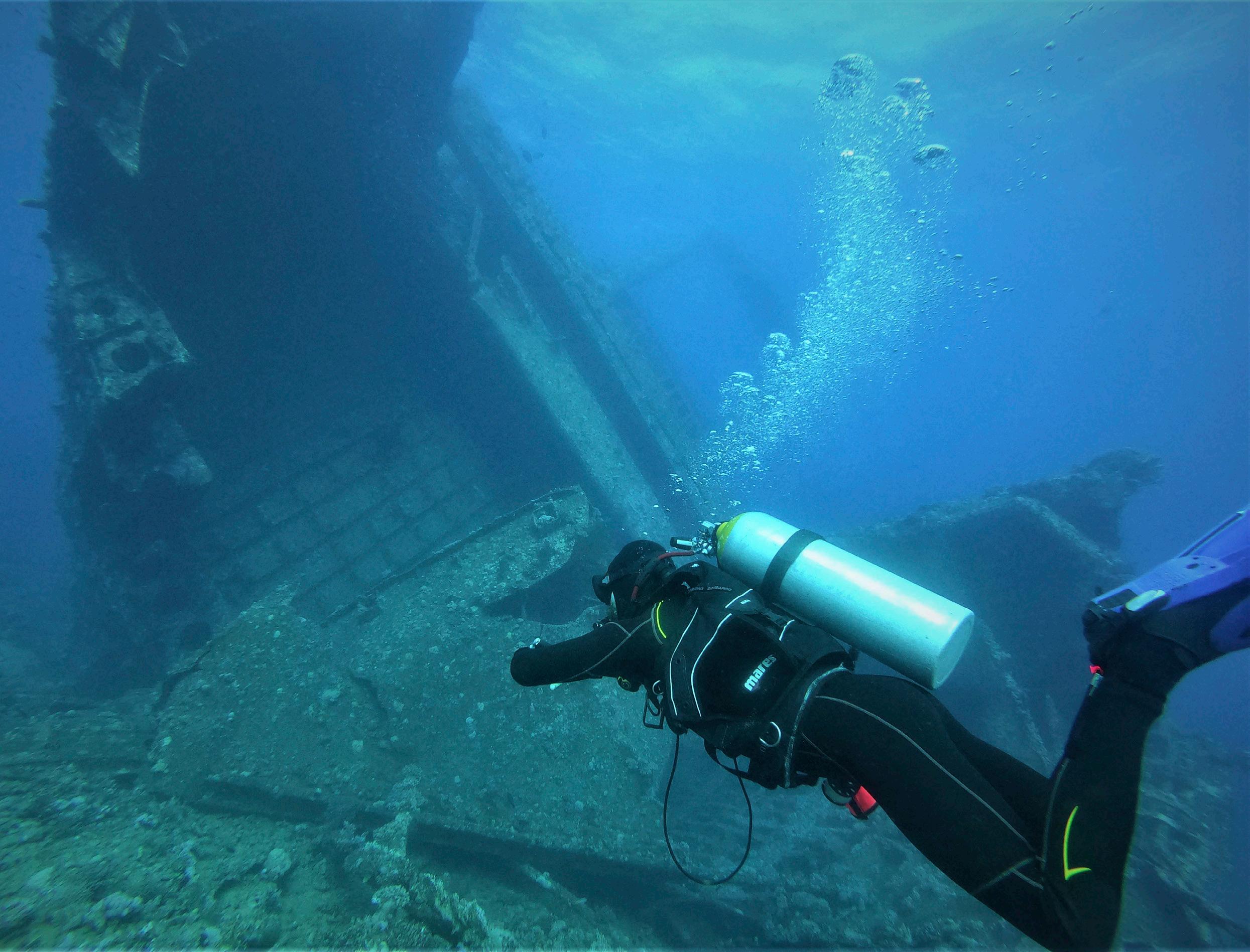
3 minute read
Is it worth participating in wreck and marine diving?
Is it worth participating in wreck and marine diving training?
Text and photos MACIEJ POSŁUSZNY
Advertisement
Do I really need another specialization, another certificate? Actually I don't need it as I only dive in warm waters, in good conditions… nothing can possibly go wrong.
These questions are often asked by both divers and those who are just starting their adventure with diving. I would like to address this article to all skeptics who deny the sense of further courses and gaining knowledge, as well as those who would like to improve their skills in the future at various training courses. In this article I will write why it is worth completing the marine and wreck diving course... Here it is better to trust the experience gained. Safety is the undisputed priority in diving. Which direction our development will take depends only on us, and only the necessary knowledge and skills can guarantee it. Certainly no one will deny that technological advances have entered diving with great bang: both technical and recreational diving. Companies are trying to outdo each other inventing more and more hardware innovations. What was once available only to a small group of enthusiasts, today is almost a common form of spending free time. Distant diving sites, deep wrecks, caves are no longer an obstacle.
In all this rush, we often forget about our own safety. This is what the courses and specializations are for. As I mentioned

at the beginning, today I am looking at the WRECK AND MARINE DIVING COURSE KDP PTTK CMAS. Why KDP CMAS??? The answer is simple: it is a federation of which I am an instructor, and I consider its standards and level of training to be one of the best, giving the best results and skills that we can need during every, not only 'sea' dive.
What is the purpose of the MARINE AND WRECK DIVING specialization?
● CDo you know that the Baltic Sea is a very changeable and dangerous place for diving? ● Can you prepare technically and in terms of equipment for the conditions you may encounter? ● Are you able to efficiently and safely use a reel, buoy, spool, compass or flashlight? ● Why is it not allowed to swim inside the wreck? ● Do you realize that even shallow dives in poor conditions can be extremely dangerous? ● Can you cut yourself off the fishing net? Can you use cutting tools? ● Do you have knowledge of the rules governing vessels? ● Do you know the legal aspects of wreck diving?
I could ask endless questions like this, but it is important that you realize whether the answers to these questions are important to you. Doing a shipwreck specialization allows you not only to do wreck diving, but also improves general diving skills, thanks to which regular diving will give you a greater sense of security. Specialization is not only a document,

but above all new experience and skills. That is why further education is worthwhile. As an instructor, my job is to guide you, show you the way, train you and prepare you for what may happen to you underwater, so that you can safely return to your families after each dive. During the MARINE AND WRECK DIVING training, we provide theoretical and practical knowledge in a very extensive content. We perform all exercises with wreck diving equipment in safe and friendly waters, at very shallow depths. Here it usually turns out that the simple use of fixing ropes, handling the reel and the simultaneous use of the flashlight can turn out to be very complicated, and if there is a sudden deterioration of visibility, our diving can turn into a drama or even a fight for life. Without this preparation, I cannot imagine diving on wrecks. It is these exercises that are an essential element and
the whole heart of the training.
Only when you are ready to take up the challenge of the Baltic Sea do we begin the adventure and exam in sea conditions. From the description it may seem serious, and indeed, everything is carried out under the strict supervision of a qualified instructor. The WRECK and MARINE DIVING specialization has a great impact on the diver's development, increases their skills and self-esteem. Try it and you will see for yourself. I am sure that each of you will be satisfied and you will not consider this training a waste of time!










